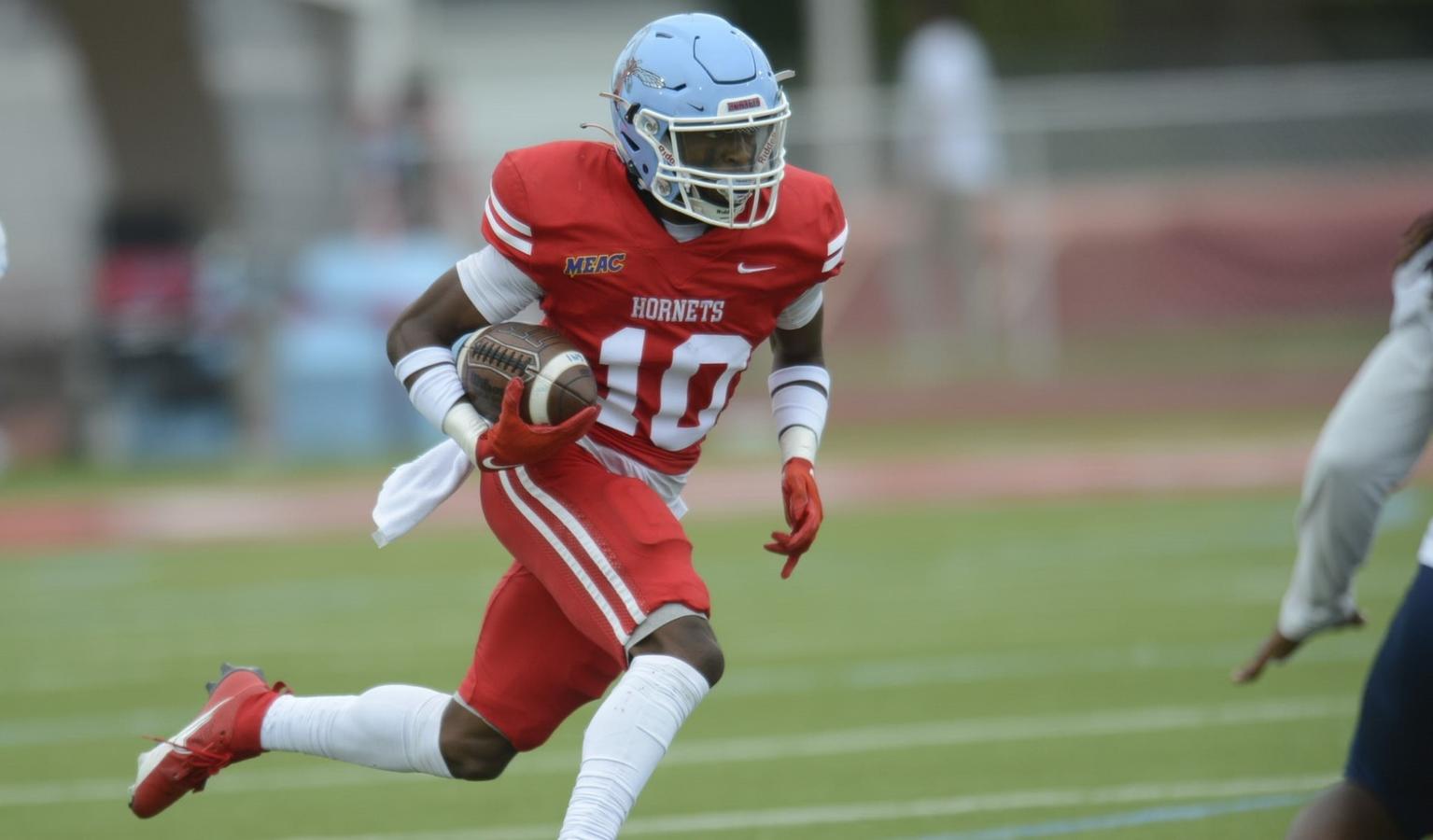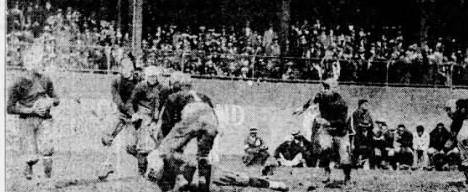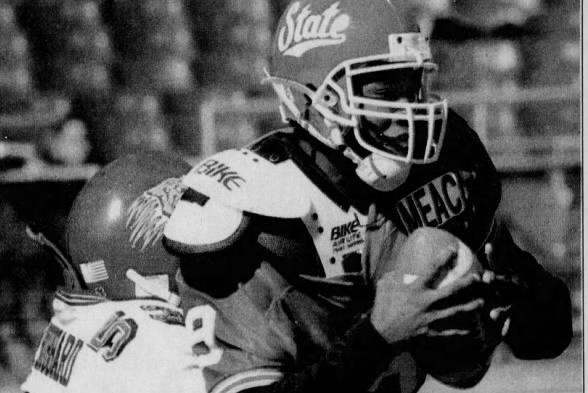•
Written By
Written By
•
•
•
Loading article...
Written By
Written By
Written By
Omar-Rashon Borja
Senior Writer, Editor, Historian
Written By
Omar-Rashon Borja
Senior Writer, Editor, Historian

Oregon’s lack of commitment to their game against Hawaii this year created something special. For the first time since 1976, and only the fourth time ever, an HBCU will visit Hawaii. Delaware State revealed a surprise addition to their schedule yesterday when their 2024 schedule announcement included a Week Zero game against Hawaii.
To many, this game is just another game that only adds fluff to an extremely light Week Zero slate. After all, Delaware State went 1-10 last year, while Hawaii has not had a winning season since 2020. However, beyond the records, several factors make this game a significant event.
As stated earlier, Delaware State-Hawaii will mark the fifth time Hawaii will host an HBCU. Three Hawaii games against Grambling in 1972, 1975, and 1976 and a one-off game against Texas Southern in 1973 precede the Hornets 2024 visit. Geography provides an obvious obstacle for HBCU visits to the Aloha State. Consequently, HBCUs have a difficult time marketing themselves to Hawaii. Except for occasional appearances from HBCUs in Hawaii’s in-house men’s basketball tournament, the Rainbow Classic, HBCUs have hardly any in-person exposure to African Americans on the island.
In general, this game presents an opportunity to connect with the Black community of Hawaii. African Americans only make up 2.2% of Hawaii’s population, according to U.S. Census population estimates from July of 2023. Much of the Black population may not even have strong connections to the islands due to the vast military influence on the island. For instance, African Americans comprise an estimated 18.9% of the population of Schofield Barracks, the home of the U.S. Army’s 25th Infantry Division near Honolulu.
Surprisingly, Delaware State could attract fans not previously interested in Hawaii football to a Hawaii home game. A significant military footprint brings the possibility of a sizable population of commissioned officers who graduated from HBCUs. 75% of Black Commissioned Officers hail from HBCUs. Even a hint of the HBCU gameday experience could make this a “can’t miss” event for Black officers on the island.
Furthermore, The Delaware State-Hawaii game allows Delaware State to potentially increase its enrollment thanks to an unlikely and far away source. Not only can Delaware State attract prospective Black students underexposed to HBCUs, but it can market itself to students of Hawaiian and Pacific Islander descent. Delaware State’s student body featured one Hawaiian or Pacific Islander student during the 2022-23 academic year. That’s right, just one. Delaware State desperately needs diversity, and this rare trip to Hawaii can open doors for the University.
HBCU trips out west serve as showcases for institutions. The game and the paycheck it brings are often the least impactful events surrounding the game. In 2017, Howard had their band perform at a Las Vegas high school football game and the university presented resources at the game, the day before playing UNLV. Any publicity is good publicity and that is true for HBCUs venturing westward.
By advertising themselves to local students, Delaware State can also appeal to under-recruited football talent on the Island. Even casual fans can name multiple NFL stars who honed their skills from a young age on the island. This exposure could give Delaware State a recruiting advantage over its MEAC counterparts. Any advantage is much-needed for a program struggling for relevance in the six-team league.
Beyond recruiting advantages and diversifying university demographics, this game is a crucial reminder of the significant contributions African Americans have made to Hawaii’s culture and history. Hawaii has a long history of civil rights cooperation between African Americans, Native Hawaiians, and other minority groups. Thomas McCants Stewart, a freed slave from South Carolina, fought to restore the lands of Native Hawaiians and valiantly defended the island’s Asian population by fighting against the Chinese Exclusion Act of 1882. McCants’ efforts do not receive the credit they should for creating a more united Hawaii.
It is difficult to tell the story of Hawaii without the events of the Pearl Harbor attack. Through the tragedy, one Black Sailor’s actions stand the test of time. Doris Miller’s actions during the attack, in which he gunned down one confirmed Japanese plane and possibly two more, earned him the Navy Cross, becoming the first African American to earn the coveted honor. Cuba Gooding’s portrayal of Miller in the movie Pearl Harbor further immortalized the heroic sailor. Hawaii even played a significant part in Jackie Robinson’s athletic journey. Robinson had a cup of coffee with the Honolulu Bears, a semi-pro football team on the island, in 1941. These are just some of the vignettes of Black influence that fill Hawaii’s history.
African American history is entrenched in Hawaiian history. The University of Hawaii can pay homage to these heroes and further connect with the local Black community. Delaware State can attract new groups of students they otherwise never would have access to. No matter the outcome, both schools can gain much from this once-in-a-lifetime meeting.

